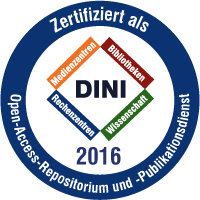- search hit 1 of 1
Water balance changes and responses of ecosystems and society in the Berlin-Brandenburg region : a review
- The climate change debate has increased the need for knowledge on both long- and short-term regional environmental changes. In general, these changes may often be a product of multiple causes, which complicates the separation of single driving forces. In this review we focus on current water budget changes in Germany’s capital region, Berlin-Brandenburg, over the last 30 years. Available studies from a variety of disciplines (e.g. hydrology, water engineering, landscape ecology, nature conservation) were analysed in order to (1) identify both local and regional hydrological changes, (2) reveal their potential causes, and (3) discuss responses of ecosystems and society. These studies show that the Berlin-Brandenburg region is widely characterised by decreasing groundwater recharge, leading to decreasing groundwater and lake levels as well as decreasing fluvial discharge. These trends result both from complex, regional human impacts (e.g. long-term effects of hydro-melioration and changes in forest composition) and more general climate warming. The observed and assumed (future) changes of the regional water balance have been creating, and will continue to create, multifaceted impacts on existing ecosystems and society (e.g. wetland drying, decrease of biodiversity, decrease of productivity of grasslands and forests, increasing conflicts of interests). Several efforts to respond to the regional water deficit problem have already been undertaken, comprising for instance land-use optimisation, wetland restoration measures and the reestablishment of mixed deciduous forests. In general, however, the reviewed regional material on this topic reveals that the number and complexity of empirical studies are still poor. Thus, for both the identification and the explanation of current water balance changes and their effects, as well as for development and implementation of adaptive strategies, further multidisciplinary research efforts at different scales, including interregional comparisons, are required. Furthermore, both the observation of hydrological changes and the evaluation of adaptive and mitigative responses require at least continuous or, even better, extended monitoring efforts.
| Author: | Sonja Germer, Knut Kaiser, Oliver Bens, Reinhard F. Hüttl |
|---|---|
| URN: | urn:nbn:de:kobv:b4-opus-21994 |
| ISBN: | 978-3-87670-911-6 |
| Document Type: | Part of a Book |
| Language: | English |
| Date of Publication (online): | 2012/02/22 |
| Publishing Institution: | Berlin-Brandenburgische Akademie der Wissenschaften |
| Release Date: | 2012/02/22 |
| Tag: | Globaler Wandel Climate Change; Drainage; Groundwater level; Lake level; Regional water balance |
| GND Keyword: | Klimaänderung; Ökosystem; Wasserhaushalt |
| Source: | Global change : challenges for regional water resources (Die Erde : Zeitschrift der Gesellschaft für Erdkunde zu Berlin ; 142, 1-2). Berlin, S. 65-95 |
| Institutes: | BBAW / Interdisziplinäre Arbeitsgruppe Globaler Wandel |
| Dewey Decimal Classification: | 5 Naturwissenschaften und Mathematik / 55 Geowissenschaften, Geologie / 550 Geowissenschaften |
| Schriftenreihen in Einzelbeiträgen: | BBAW / Materialien der Interdisziplinären Arbeitsgruppen und Initiativen / Global change : challenges for regional water resources |




